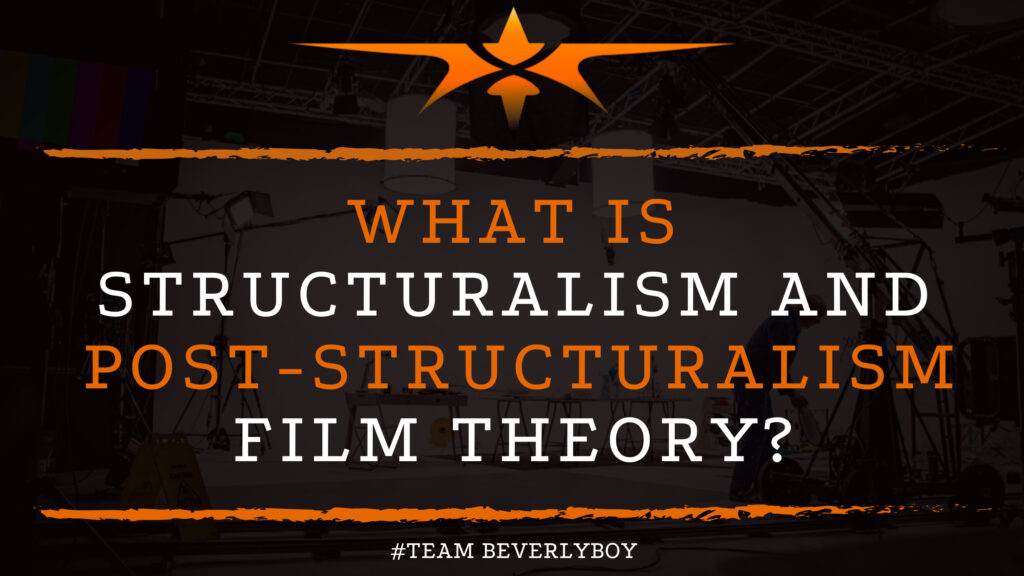What is Structuralism and Post-Structuralism Film Theory?
Structuralism and post-structuralism film theory represents the rise of film studies that came at the turn of the linguistic paradigm in which. During the 1960s and 1970s theorists attempted to re-conceptualize the idea of language. As an explanation of cinematic expression. During the linguistic turn, theorists were only just beginning to view filmmaking and motion picture as a field of scholarly study. In which academic departments from universities would begin to approach topics. Beyond the typical film appreciation studies into a more scientific approach to film criticism.

Structuralism and post-structuralism theorists believe that language supersedes humans. And thus is the foundation upon which everything is built.
Moreover, these theorists believe that language, and the signs or symbols that make up linguistic studies, are at the foundation of which the rest of the world is develops.
While both structuralism and post-structuralism are largely linguistic approaches to film theory and study. There is a difference between the two of these studies.
What is Structuralism Film Theory?
Structuralism film theory approaches the analysis of films based on language structure. With reality only viewed as a linguistic medium in which emotions and connections resulting from the films studied are the result from the various structural elements used to produce the film.
Structuralism uses scientific discovery to address relationships between the elements of film that our social and cultural behaviors impact.
What is Post-Structuralism Film Theory?
Post-structuralism film theory essentially finds the pseudo scientific study of film structuralists to be completely ridiculous. Instead, post-structuralists believe that the various assumptions that make up structuralism are to be challenged.
So, interpretive attitudes like semiotics are not worthy of the time or attention that was given to them in the 1960s. Instead, post-structuralism references attention towards various unexplained elements in film and the suspicion of systems and radical theories.
Post-structuralism theory is more that of breaking down systems, and deconstructing film. Post-structuralists criticize the stability of signs and systems that structuralists seek.
Historical Significance
This type of film study took a completely different direction calling for film scholars to denaturalize film. Such that hidden cultural and ideological codes would and could be found inscribed in the writings of various films. Based on the dominant ideology of the individual responsible for the analysis.
Understanding structuralism and post-structuralism film theory is certainly not something that comes easy for those who are new to film studies. Referred to as the linguistic turn. These studies have largely come under attack over the years.
And are mostly only referenced as a historical point in film study. However, it is important to understand that both structuralism and post-structuralism film theory certainly has had lasting effects on the interpretation of film and film studies. Each with their own place in history.


